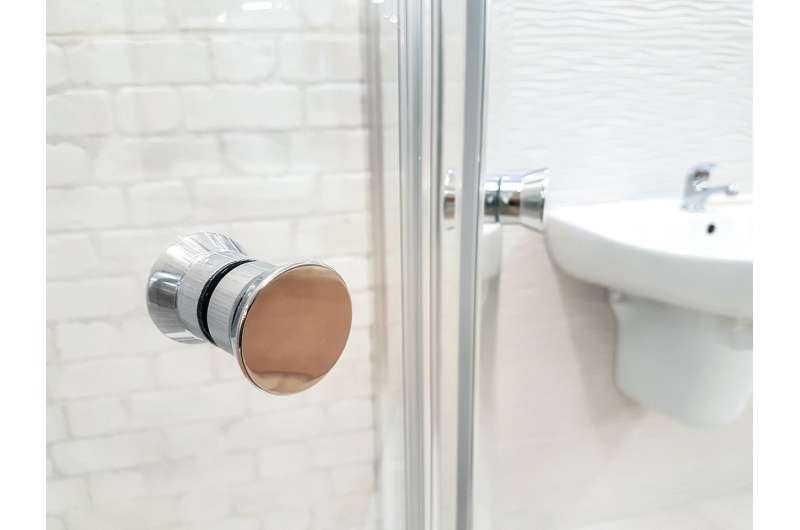Having a clock in your shower could help to reduce water consumption

Findings from a small preliminary study with residents of the Cranfield University campus have shown that shower times are significantly shorter when showers are fitted with time displays.
Various forms of University accommodation were fitted with Aguardio sensors that automatically—and unobtrusively—measure shower duration, as well as feedback units that display shower times.
Results from the first four months of the research, which began in October last year, found that residences with display units had showers that were around 20 to 30 percent shorter (on average) compared to those with sensors only; a saving of roughly two minutes per shower.
With a high-level threat of water security for nearly 80 percent of the world's population, adopting better behaviour to reduce water consumption is seen as necessary.
Dr. Heather Smith, lecturer in water governance, Cranfield Water Science Institute, said: "The difficulty with showering is that it is, for good reason, a hidden behaviour. There are limitations on what factors can influence these hidden behaviours, unlike other more visible behaviours, such as buying plastic bags, which are more readily influenced by social norms.
"These initial findings show that unobtrusive sensors can be effective at capturing anonymous data on hidden water-use behaviours, and that real-time feedback displays can have an influence on those behaviours to promote water conservation. This preliminary study will inform a much larger trial of the sensors that will incorporate additional forms of messaging to explore the effects of different influential factors on shower behaviour over the longer term."
Aguardio sensors have also been used in trials within hotel rooms and showed an 11 to 23 percent reduction in water use.
The research at Cranfield involved showers in around 25 residences, covering single occupant en-suite rooms, shared houses and family houses. Although the initial trial is small and the research is at an early stage, the findings show that this kind of technology could help to reduce water and energy consumption at the University.
Dr. Caitriona Shannon, research fellow in perceptions and behaviour, Cranfield Water Science Institute, said: "Studies like this can give us a better understanding of water-use habits and motivations to change behaviour to reduce water consumption and costs. Insights from these studies will contribute to a better understanding of pro-environmental behaviour, and the impact of hidden behaviours in particular."
The Cranfield campus uses on average around 160 million litres of water a year. This includes water used in common areas such as the sports field and in horticulture, toilets, sinks, laboratories, shops and cafeterias, for heating and in student accommodation.
Provided by Cranfield University




















